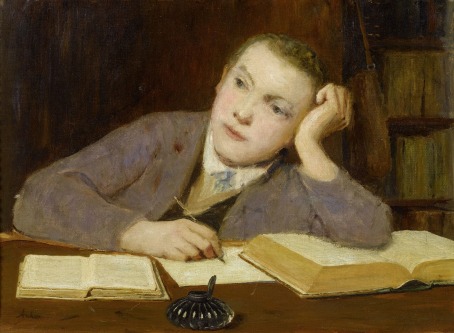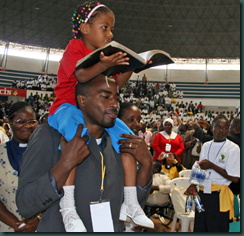There is division and dissension in churches across the United States. While not every conflict ends up in court, there is no shortage of hurt feelings, estranged former members, churches divided along factional lines, coup d’etat, and breakaway factions. (In fact, ask any person who has “left” Christianity for some other religion or to become atheist, and most of them will be able to point to a specific conflict or offensive incident in their past which alienated them from the church.)
The key issue in every dispute is not whether conflict will happen, but how we will respond to it when it does happen.
 |
“My command is this: Love each other as I have loved you.”John 15:12
|
Will we respond in love?
And, what does it mean, this commandment to “love” one another?

As to what it means to “love one another,” consider first, Christ’s love for us.
Though a love that lays down its life for others is counterintuitive to human nature, that expression of God’s love for us is the first model for how we are to love one another.
In the example set out by Christ, we observe how we are to treat others. The Lamb of God has loved each of us sacrificially, paving the way for reconciliation between God and mankind. We, in our personal relationships, are commanded to do likewise.
In Matthew 5:23-24, we are admonished not to approach the altar of God until we have become reconciled to our fellow humans:
But I tell you that anyone who is angry with a brother or sister will be subject to judgment. Again, anyone who says to a brother or sister, ‘Raca,’ is answerable to the court. And anyone who says, ‘You fool!’ will be in danger of the fire of hell. Therefore, if you are offering your gift at the altar and there remember that your brother or sister has something against you, leave your gift there in front of the altar. First go and be reconciled to them; then come and offer your gift.
And Jesus taught us to pray: "Forgive us our debts, as we forgive our debtors."
These are not empty words, “as we forgive our debtors.” Our extension of forgiveness – of compassion– to others is a condition to being forgiven. This fundamental attitude toward our fellow human – an attitude of love — does not allow for ostracization, for "other" ness, for building walls and fences.
When we fail to forgive, we risk being like the unforgiving servant in Matthew 18:21 – 35. This servant, after being forgiven a large debt, displayed a lack of compassion toward another who was indebted to him for a lesser amount. In this parable, when the Master found out about the lack of compassion shown by the servant who had been forgiven so much, he had him thrown into prison and tortured until he repaid back every bit of his original debt.
Truly, the consequences that flow from our own hardness of heart toward those with whom we differ are the consequences we really need to fear. For, how can we approach the throne of God to ask for forgiveness for our sin, when we fail to extend even a smaller measure of grace to those who have sinned against us?
Read Full Post »










